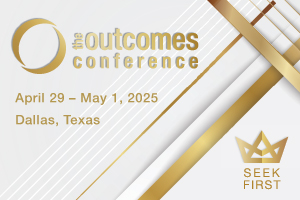
Stewards of Civility By Jon Lewis

Biblical Civility in Turbulent Times
During my seven-decade lifetime, no time has demonstrated more of a lack of civil discourse than today. I write this blog approaching the November 5, 2024, U.S. presidential elections. I am not confident that the days and weeks following the upcoming election will be any better, no matter which candidate might win.
How, Then, Should I Speak?
All of this begs the question (borrowing from a Francis Schaeffer expression): “How then should I speak?” As someone committed to living out biblical values in my everyday life, especially within the leadership roles I fulfill, how can I engage in meaningful conversation with the people God puts in my path that is positive, civil, and might even lead toward a mutual understanding, rather than degenerating into a contentious cat fight of ideological opposites?
Biblical Advice
The Bible has plenty to say on the subject of speech. Verses that come immediately to mind include
“Let your conversation be always full of grace, seasoned with salt, so you may know how to answer everyone.”
Colossians 4:6
“Do not let any unwholesome talk come out of your mouths, but only what is helpful for building others up according to their needs, that it may benefit those who listen.”
Ephesians 4:29
“A gentle answer turns away wrath, but a harsh word stirs up anger.”
Proverbs 15:1-2
As much as I agree with and espouse these excellent admonitions, I still struggle with applying them in my conversations today, particularly with people who hold worldviews significantly different from mine.
A Thoughtful Reply
Author and columnist David French points Christians to three fundamental principles in Micah 6:8 to live out their faith in a post-Christian era: To act justly, love mercy, and walk humbly with your God. Recently, I heard him expand on this idea in a webinar where he was asked a similar question to the one I presented above: “How should we as Christ-followers respond to others amid such a contentious and politically polarized society?” His answer was brilliant and gave me what I was looking for in practically applying the biblical mandates in the verses above.
He said that our typical conversations should encompass all three principles of Micah 6:8, but we should reverse their order as we navigate our dialogues. Begin with humility, then demonstrate mercy, and only at that point should we grapple with the challenging issues of justice. French said humility is best shown by asking questions. They need to be questions that genuinely show interest in the person we are talking to and their particular viewpoint. Mercy is another way of showing kindness—in our demeanor, voice, and expressions. By first showing humility and compassion in this way, we can be more assured of earning the right to be heard when we get to the subject of justice—usually the “meat” of our conversation. If we start with justice, however, we risk butting ideological heads immediately and never getting any further.
This suggestion of the reverse order of Micah 6:8 as a formula for healthy conversation may not guarantee a win for every debate we engage in. Still, it certainly will ensure that we exhibit a God-honoring example of someone who knows how to steward civility.
All verses above from the NIV 1984 edition
####
Jon Lewis is a Senior Associate for Partnership Advancement with OC International. He focuses on encouraging global Christian leaders toward greater ministry effectiveness. With over 40 years of experience, he has served as an MAF mission pilot in Africa and as CEO of Partners International.
CLA is grateful for its 2024-2025 Academy sponsor: Cornerstone Managment!

The Winter Term Enrollment for 10-week Cohorts is Now Open!
Both courses earn 20 points toward the Credentialed Christian Nonprofit Leader (CCNL) Program!
Enroll Today!




